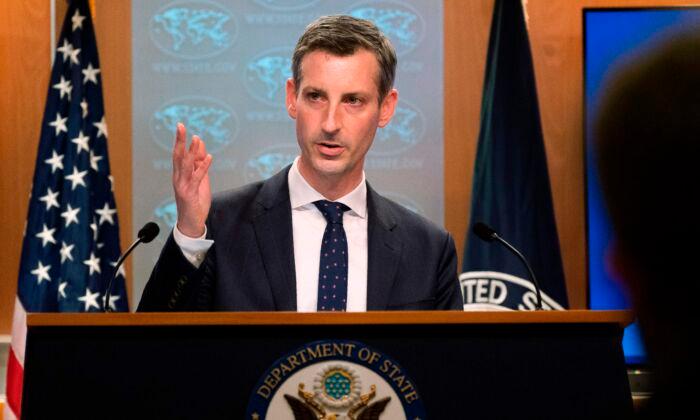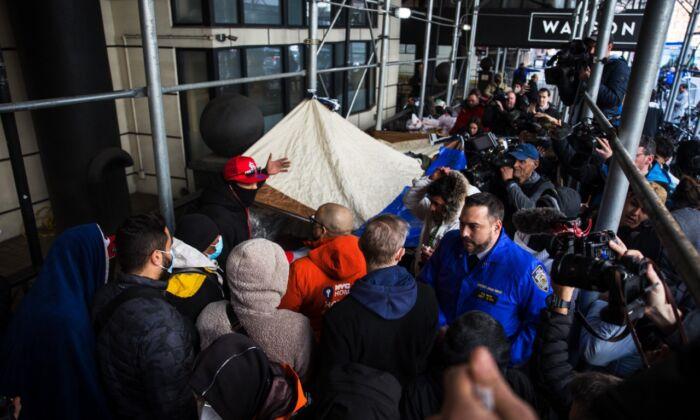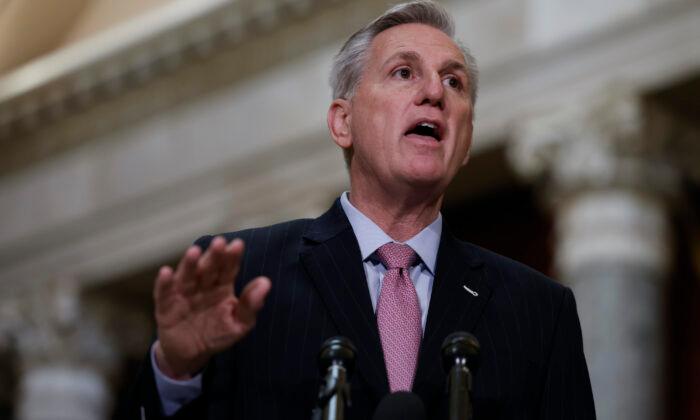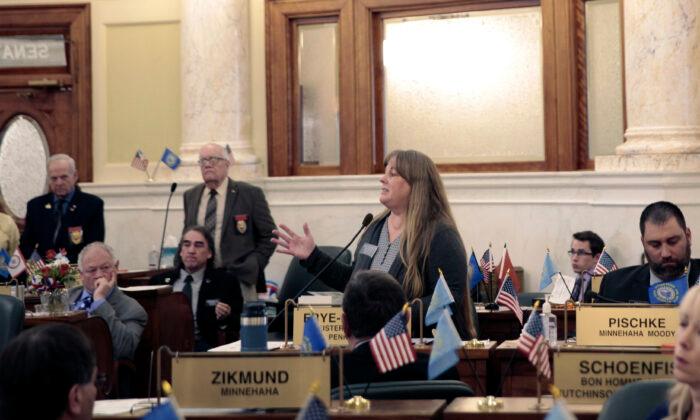Washington expressed deep concern over the “increasingly harsh” surveillance, harassment, and intimidation that endangered U.S. and other foreign reporters in China, including those covering recent floods in its central territory, the State Department said on July 29.
“The PRC government claims to welcome foreign media and support their work, but its actions tell a different story,” State Department spokesperson Ned Price said in a
statement released on Thursday.
He explained: “Its [Chinese regime] harsh rhetoric, promoted through official state media, toward any news it perceives to be critical of PRC policies, has provoked negative public sentiment leading to tense, in-person confrontations and harassment.”
The statement came after U.S. and other foreign journalists reporting on the floods in central China’s Henan Province were verbally
attacked by angry groups, both in person and online, while staff from the BBC and Los Angeles Times received death threats.
In one incident, the local branch of the Chinese Communist Party’s Youth League had incited hostility and asked its social media followers to report the whereabouts of BBC’s China correspondent Robin Brant.
Chinese netizens criticized Brant for publishing a
video report about passengers who were trapped in a flooded subway in Zhengzhou city. At least 14 people died in the incident.
The BBC was slammed as a “rumor broadcasting company” by the Chinese Foreign Ministry.
On July 24, Mathias Boelinger, a correspondent from German media outlet Deutsche Welle, was confronted by an angry crowd who mistook him for Brant and told him to “Get out of China,” according to a
Twitter post by a Los Angeles Times journalist on the scene.
More foreign journalists are now
refusing to enter or remain in China due to visa curbs, Price said in the statement, “severely limiting the quantity and quality of independent reporting on important issues.”
In February 2020, when COVID-19 began spreading throughout China, the Chinese regime
revoked the press credentials of three Wall Street Journal reporters over an opinion article calling China the “real sick man of Asia”—though none of the three expelled journalists were involved in writing the article. In response, the Trump administration reduced the number of Chinese journalists allowed to work in the United States
from 160 to 100. Soon after, Beijing retaliated by
expelling U.S. journalists working for five newspapers, including The New York Times, The Wall Street Journal and The Washington Post.
“We call on PRC officials to ensure that journalists remain safe and able to report freely,” Price said, urging China to “welcome” foreign media for the upcoming 2022 Winter Olympic and Paralympic Games as a “responsible nation.”
The Foreign Correspondents’ Club of China said in a July 27 statement, “[Rhetoric] endangers the physical safety of foreign journalists in China and hinders free reporting.”
Steven Butler, Asia program coordinator of the Committee to Protect Journalists (CPJ), said in a report, “The harassment of foreign correspondents just doing their job—in this case reporting on the tragic floods in Zhengzhou—has reached intolerable proportions.”
In a December 2020 report, the CPJ ranked China as the
worst jailer of journalists worldwide for detaining at least 47 journalists in the country at the time.
Brussels-based
International Federation of Journalists said the recent intimidation and attacks in China undermined the safety of citizens in Zhengzhou “who are seeking information about the crisis from journalists.”
In the past year, Chinese authorities detained Australian journalist Cheng Lei and Haze Fan, a Chinese national working for Bloomberg News, both on suspicion of endangering national security.
U.S. Deputy Secretary of State Wendy Sherman also raised the issue of press freedom in China during a meeting with Chinese officials in northern Tianjin city earlier this week.




